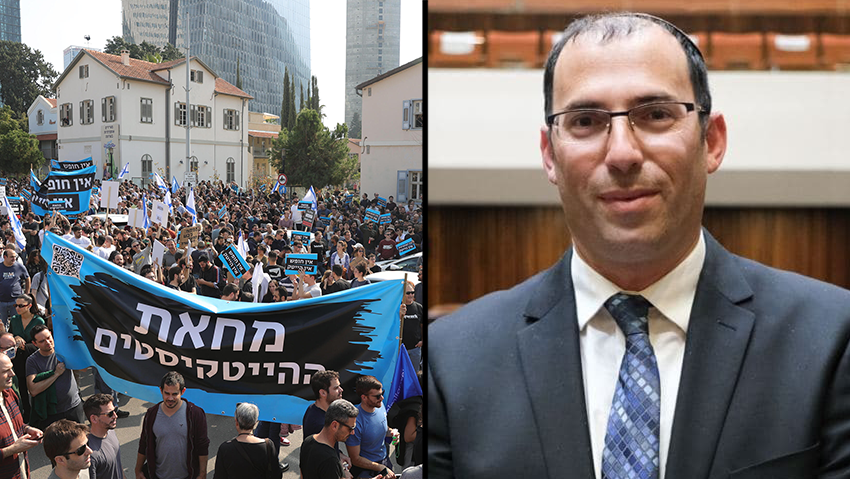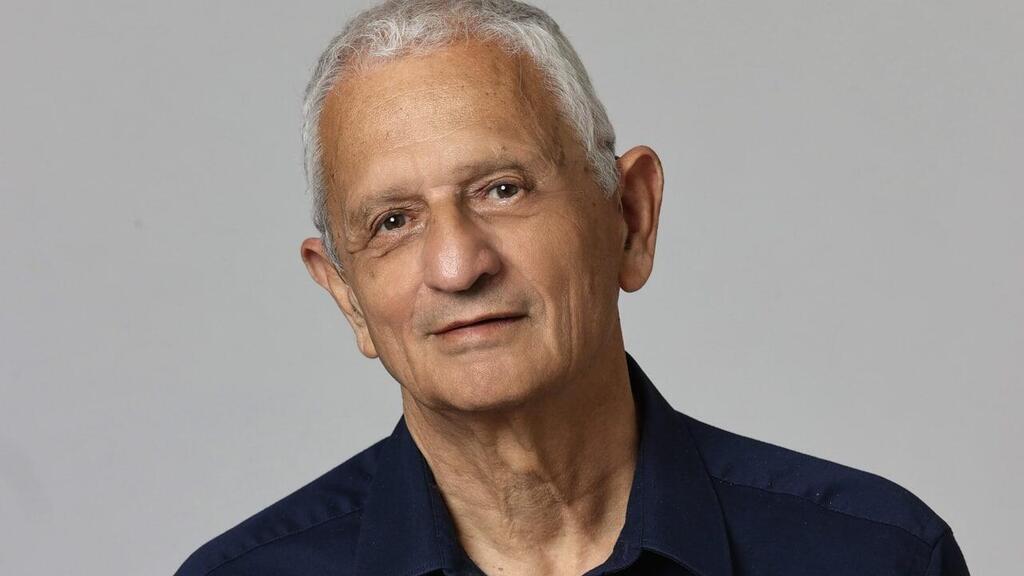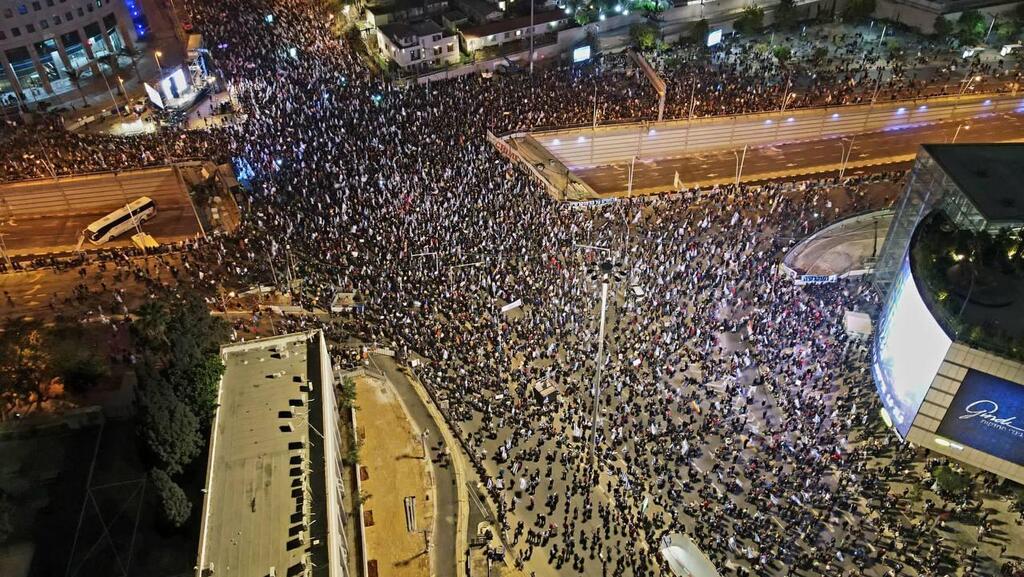Getting your Trinity Audio player ready...
Democracy is faltering, and wrestling with determined and heavy-handed Justice Minister Yariv Levin and Knesset's Constitution Law and Justice Committee chair Simcha Rothman.
Menachem Begin wisely said that sometimes you have to state the obvious. What's obvious now is that the violent statements of ex-pilot Col. (res.) Ze'ev Raz and Attorney David Hodak, implying legitimization of using violence and firearms against Prime Minster Benjamin Netanyahu, must be condemned.
Anyone trying to defend democracy should first exhaust all means that democracy allows, before turning to any coercive tools. Threats of the use of firearms neither deter the other side nor convince those undecided to make up their minds. What this does do, is it sullies the very values on which the protests are based, and serves to ignite a propaganda campaign on the part of the anti-democratic movement.
The defenders of Raz and Hodak claim that they “spoke out of anger.” We must bear in mind that “words spoken in anger” is a weak claim. Those threatening the lives of Attorney General of Israel Gali Baharav-Miara and prosecutor in Netanyahu's trial Liat Ben-Ari, also used this excuse.
The defenders of Raz and Hodak will insist that they were bravely fighting for the country. But with all due respect, they should be the first to stand by the values on which we all were raised, the same ones that shape Israel's history. Anyone who has courageously fought for this country is expected to understand that a gun is not simply a means to an end of something undesired.
But all of this is just background noise. The point of the matter is that Israel has spent the past few weeks engaging in a historic struggle over the nature of the country.
Those protesting against the regime see the instigators of the turmoil not as reforms themselves, rather as the unjust individuals promoting them - Levin, Rothman, Religious Zionist Party leader Bezalel Smotrich, the Kohelet Policy Forum and its American billionaire supporters. This opinion is shared by the Supreme Court judges, past and present, and also by the hundreds of thousands of protesters.
It’s not about one clause or another. It’s the whole nucleus.
Both sides of the clash are convinced that after the laws subjugating the judicial system are passed, the government’s dams will no longer hold. What was, will no longer be. Within a matter of years, reality will overturn. Values will change, once and for all. This is the source of the sense of emergency amongst us, and this is where the reluctance to compromise comes from.
In all fairness, not everyone sees it in such dramatic terms. Some political representatives believe that a consensual solution will eventually be reached at the end of this dreadful process. They believe that the Rothman-Levin revolution will pass its first reading in the Knesset, after which negotiations will ensue. The President will mediate and clear the air. Everything will be okay - that’s the message Netanyahu conveyed in the interview with CNN, and that’s what he told Anthony Blinken and Emanuel Macron.
Even if Netanyahu meant it, and it’s unlikely that he did, it makes no sense politically. The passing of the law would be a life-long-dream-come-true for Levin and Rothman. They’ll charge ahead. They’ll have four coalition factions behind them - The Religious Zionist Party, Otzma Yehudit, United Torah Judaism, and Shas. All of them will start to act upon their interests, and no one will be there to stop them. Netanyahu won’t be able to control them, heck - he can't even control them now.
The economy plays a central role in this struggle. Israelis, including those who expressed support for the judicial reforms in surveys, don’t see how important this is. Their prefer to see their personal safety and the cost of living as a far greater concern. They don’t understand the panic and urgency. They are reluctant to pay the price.
A few weeks ago, I spoke with a senior figure in Israel’s hi-tech sector. It was before hi-tech entrepreneur Tom Livne announced he’d be removing his money and his family out of Israel. We spoke about steps that various sectors of protestors might take. He told me to imagine that one day hundreds of thousands of Israelis would cash in their savings plans - what would that do to the economy? what would that do to the country’s credit rating? Just imagine. But we don’t need to let our imaginations run wild, I thought to myself. The economic damage is already here, we have the research departments at the banks telling us so.
6 View gallery


High-tech industry's protest against reforms, Simcha Rothman
(Photo: Yoav Dudkevtich, EPA)
We have no way to convince Levin and Rothman to back down. Destroying the judicial system at any cost is their life’s mission. The full responsibility to get them off their high horses lies in the hands of those giving them the power to do just that.
In the past, when governments faced extremist situations, people from within the ruling party would stand up and say enough is enough, and call on everyone to settle down. This is how commissions of inquiry and public committees came to be. The lessons of time took care of what common sense had missed.
In the meantime, all but that is happening. Likud ministers who voice their concerns privately, are not speaking up.
Thus, we have no choice. We must continue to protest. With all our might. We don't have much time left. Democracy is faltering, and wresting with determined and heavy-handed Levin and Rothman.
Nahum Barnea is an Israeli journalist, winner of the Israel Prize in 2007, and a columnist for Ynet






